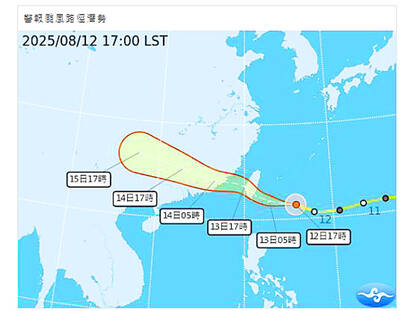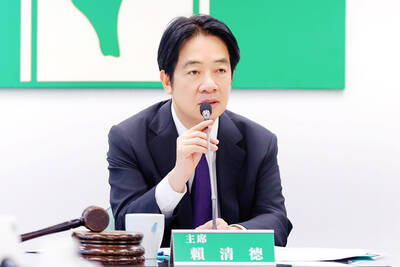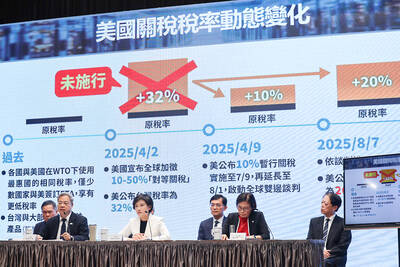Chevron Corp has won a three-year-old arbitration fight against Ecuador over a commercial dispute as it battles the country separately over an environmental claim against the company that could result in US$27 billion in damages.
An arbitration panel ruled on Tuesday that Ecuador’s courts violated international law by delaying rulings on commercial disputes between a subsidiary of the second-largest US oil company and Ecuador’s government.
The arbitration panel partially resolved seven claims that Texaco, bought by Chevron in 2001, filed in Ecuador from 1991 to 1993, and awarded the company US$700 million, Chevron said.
“It is a partial decision,” Ecuador’s solicitor general, Diego Garcia, said in a statement. “It is inexact to say that Ecuador has been ordered to pay compensation of US$700 million.”
The panel found Ecuador’s courts had breached a trade treaty between the country and the US by not ruling on the cases.
It is the same treaty that Chevron is citing in its arbitration claim filed in September over alleged interference by the government in a blockbuster case brought by indigenous Ecuadoreans who accuse Texaco of damaging the environment and their health through its operations there.
With a ruling by the Ecuadorean judge on that case expected at some point this year, lawyers for the plaintiffs accused Chevron of forum shopping by bringing in the arbitrators.
Chevron has spent 17 years battling that claim, which a court expert has said could result in damages of up to US$27 billion against the San Ramon, California-based company.
The plaintiffs and Chevron both expect the court to rule against the company, which vows to appeal any ruling against it, arguing that Ecuador’s courts are biased.

GET TO SAFETY: Authorities were scrambling to evacuate nearly 700 people in Hualien County to prepare for overflow from a natural dam formed by a previous typhoon Typhoon Podul yesterday intensified and accelerated as it neared Taiwan, with the impact expected to be felt overnight, the Central Weather Administration (CWA) said, while the Directorate-General of Personnel Administration announced that schools and government offices in most areas of southern and eastern Taiwan would be closed today. The affected regions are Tainan, Kaohsiung and Chiayi City, and Yunlin, Chiayi, Pingtung, Hualien and Taitung counties, as well as the outlying Penghu County. As of 10pm last night, the storm was about 370km east-southeast of Taitung County, moving west-northwest at 27kph, CWA data showed. With a radius of 120km, Podul is carrying maximum sustained

Tropical Storm Podul strengthened into a typhoon at 8pm yesterday, the Central Weather Administration (CWA) said, with a sea warning to be issued late last night or early this morning. As of 8pm, the typhoon was 1,020km east of Oluanpi (鵝鑾鼻), Taiwan’s southernmost tip, moving west at 23kph. The storm carried maximum sustained winds of 119kph and gusts reaching 155kph, the CWA said. Based on the tropical storm’s trajectory, a land warning could be issued any time from midday today, it added. CWA forecaster Chang Chun-yao (張竣堯) said Podul is a fast-moving storm that is forecast to bring its heaviest rainfall and strongest

President William Lai (賴清德) yesterday criticized the nuclear energy referendum scheduled for Saturday next week, saying that holding the plebiscite before the government can conduct safety evaluations is a denial of the public’s right to make informed decisions. Lai, who is also the chairman of the Democratic Progressive Party (DPP), made the comments at the party’s Central Standing Committee meeting at its headquarters in Taipei. ‘NO’ “I will go to the ballot box on Saturday next week to cast a ‘no’ vote, as we all should do,” he said as he called on the public to reject the proposition to reactivate the decommissioned

TALKS CONTINUE: Although an agreement has not been reached with Washington, lowering the tariff from 32 percent to 20 percent is still progress, the vice premier said Taiwan would strive for a better US tariff rate in negotiations, with the goal being not just lowering the current 20-percent tariff rate, but also securing an exemption from tariff stacking, Vice Premier Cheng Li-chiun (鄭麗君) said yesterday. Cheng made the remarks at a news conference at the Executive Yuan explaining the new US tariffs and the government’s plans for supporting affected industries. US President Donald Trump on July 31 announced a new tariff rate of 20 percent on Taiwan’s exports to the US starting on Thursday last week, and the Office of Trade Negotiations on Friday confirmed that it